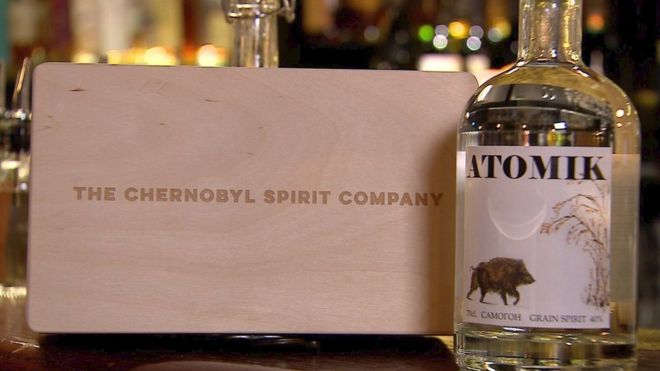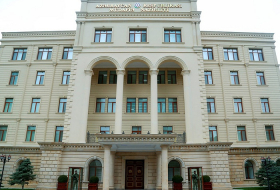The "artisan vodka", made with grain and water from the Chernobyl exclusion zone, is the first consumer product to come from the abandoned area around the damaged nuclear power plant.
The team started the vodka project by growing crops on a farm in the zone.
"Our idea then was [to use that rye grain] to make a spirit," they say.
As well as Prof Smith, who is based at the University of Portsmouth, UK, the team behind the spirit is made up of researchers who have worked in the exclusion zone for many years - studying how the land has recovered since the catastrophic nuclear accident in 1986.
They hope to use profits from selling it to help communities in Ukraine still affected by the economic impact of the disaster.
Is the spirit radioactive?
"This is no more radioactive than any other vodka," says Prof Smith.
"Any chemist will tell you, when you distil something, impurities stay in the waste product.
"So we took rye that was slightly contaminated and water from the Chernobyl aquifer and we distilled it.
"We asked our friends at Southampton University, who have an amazing radio-analytical laboratory, to see if they could find any radioactivity.
"They couldn't find anything - everything was below their limit of detection."
Dr Gennady Laptev, a scientist based at the Ukrainian Hydrometeorological Institute, in Kiev, is also a founding member of the newly created Chernobyl Spirit Company.
Speaking to me during a trip to the exclusion zone, where I was following the team as they carried out their environmental research and crop-growing studies, he explained that the rye grain and the resulting spirit show how some of the land could be used productively.
"We don't have to just abandon the land," he says. "We can use it in diverse ways and we can produce something that will be totally clean from the radioactivity."
BBC
More about:













-1747837442.jpg&h=190&w=280&zc=1&q=100)


































